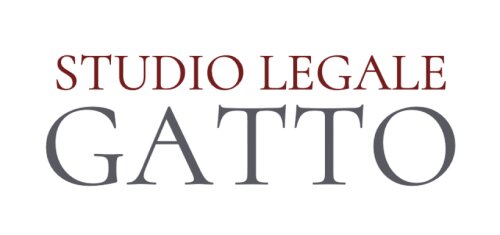Best Employment & Labor Lawyers in Milan
Share your needs with us, get contacted by law firms.
Free. Takes 2 min.
List of the best lawyers in Milan, Italy
Italy Employment & Labor Legal Questions answered by Lawyers
Browse our 1 legal question about Employment & Labor in Italy and read the lawyer answers, or ask your own questions for free.
- I am being repeatedly bullied by a colleague at work
- I am being repeatedly bullied by a colleague at work and despite numerous attempts to get help from my supervisors, nothing has been done. I have also been bullied by my supervisors (lying to me - giving preferential treatment to others - giving me more work - not helped when... Read more →
-
Lawyer answer by Studio legale DSC
The repeated bullying you've experienced is a serious matter.Given the impact on your well-being and your supervisors' involvement, consider consulting an employment lawyer to discuss potential compensation claims like hostile work environment or retaliation.
Read full answer
About Employment & Labor Law in Milan, Italy
Employment and labor law in Milan, Italy, forms a crucial aspect of legal practice, governed by both national statutes and European Union regulations. The Italian labor market is characterized by a mix of protections for workers and flexibility for employers, aiming to balance interests in a dynamic economic environment. In Milan, as in the rest of Italy, these laws regulate everything from employment contracts, working conditions, and employee rights, to collective bargaining and dispute resolutions. A major hub for both traditional industries and burgeoning sectors like fashion and finance, Milan's employment landscape is diverse and constantly evolving.
Why You May Need a Lawyer
Individuals and businesses in Milan may encounter numerous situations where legal assistance in employment and labor matters is necessary. Common scenarios include contract negotiations, where a lawyer can ensure terms are fair and comply with Italian standards. In cases of disputes over wrongful termination or discrimination, a lawyer's guidance is invaluable to navigate the complexities of labor laws and court proceedings. Businesses often need legal advice to ensure compliance with employment regulations, avoiding costly penalties. Additionally, lawyers assist with issues concerning workplace safety, wage disputes, and collective bargaining agreements.
Local Laws Overview
Employment laws in Milan are dictated by Italian national laws, which align significantly with European Union legislation. Key components include mandatory employment contracts, which should be clear about roles, responsibilities, and remuneration. The Italian labor law provides protections against unfair dismissal, with specific procedures to be followed in termination cases. Collective bargaining is common, with trade unions playing a significant role in negotiating workers' terms. Working conditions, including working hours and health and safety standards, are regulated to ensure fair treatment. Equal opportunity and anti-discrimination laws also form a core part of the legal landscape, entitling all individuals to a safe workplace free from harassment and discrimination.
Frequently Asked Questions
What are the main types of employment contracts in Italy?
Italy recognizes several types of employment contracts, including permanent, fixed-term, part-time, and apprenticeship contracts. Each comes with specific regulations regarding duration, termination, and rights.
Is there a minimum wage in Italy?
Italy does not have a nationwide statutory minimum wage. Instead, minimum wages are usually set through collective bargaining agreements within different sectors.
How does redundancy work in Milan?
Redundancy in Milan must follow specific legal procedures, including selecting positions according to fair criteria and providing due notice. Redundant employees may be entitled to compensation.
Can an employee work more than 40 hours per week?
While the standard working week in Italy is 40 hours, overtime is permissible but should not exceed 8 additional hours per week. Overtime must be compensated according to the guidelines in the employment contract or collective agreements.
What is the procedure for resolving employment disputes?
Employment disputes can be resolved through negotiations, mediation, or court proceedings. Initially, attempts are made to settle disputes internally or with the help of trade unions before resorting to legal action.
Are non-compete clauses enforceable in Italy?
Non-compete clauses are enforceable in Italy but must be reasonable in terms of duration, geographic scope, and compensation to the employee for complying with the clause.
What rights do pregnant employees have in Italy?
Pregnant employees in Italy are entitled to specific protections, including pregnancy leave, maternity leave, job protection, and the right to resume their position or a similar one post-maternity leave.
Are employees entitled to paid vacation in Milan?
Yes, employees in Milan are entitled to a minimum of four weeks paid vacation per year, which is mandated by Italian law.
What should an employee do if they experience workplace discrimination?
An employee should report the incident to their employer or the relevant HR department. If the issue is not resolved internally, they may seek advice or initiate legal action with the help of a lawyer or a trade union.
How are layoffs regulated in Italy?
Layoffs must comply with Italian laws, including meeting specific justified reasons and adherence to procedures such as consultation with trade unions if applicable. Severance pay may also be due based on tenure and cause.
Additional Resources
For those seeking further information or assistance, several resources are available:
- The Italian Ministry of Labor and Social Policies provides comprehensive guidance on employment regulations.
- INPS (National Institute for Social Security) offers resources on social security and welfare for workers.
- Trade unions like CGIL, CISL, and UIL can assist with collective agreements and worker rights.
- Local labor inspectorates in Milan provide assistance and enforcement of employment standards.
Next Steps
If you require legal assistance in employment and labor-related matters in Milan, it is advisable to consult with a specialized lawyer. Begin by identifying your specific needs, be it contract review, dispute resolution, or compliance advice. You may contact law firms specializing in employment law or utilize resources like trade unions for initial guidance. Additionally, consider scheduling a consultation to discuss your circumstances and get legal representation tailored to your situation.
Lawzana helps you find the best lawyers and law firms in Milan through a curated and pre-screened list of qualified legal professionals. Our platform offers rankings and detailed profiles of attorneys and law firms, allowing you to compare based on practice areas, including Employment & Labor, experience, and client feedback.
Each profile includes a description of the firm's areas of practice, client reviews, team members and partners, year of establishment, spoken languages, office locations, contact information, social media presence, and any published articles or resources. Most firms on our platform speak English and are experienced in both local and international legal matters.
Get a quote from top-rated law firms in Milan, Italy — quickly, securely, and without unnecessary hassle.
Disclaimer:
The information provided on this page is for general informational purposes only and does not constitute legal advice. While we strive to ensure the accuracy and relevance of the content, legal information may change over time, and interpretations of the law can vary. You should always consult with a qualified legal professional for advice specific to your situation.
We disclaim all liability for actions taken or not taken based on the content of this page. If you believe any information is incorrect or outdated, please contact us, and we will review and update it where appropriate.
Browse employment & labor law firms by service in Milan, Italy
Milan, Italy Attorneys in related practice areas.













